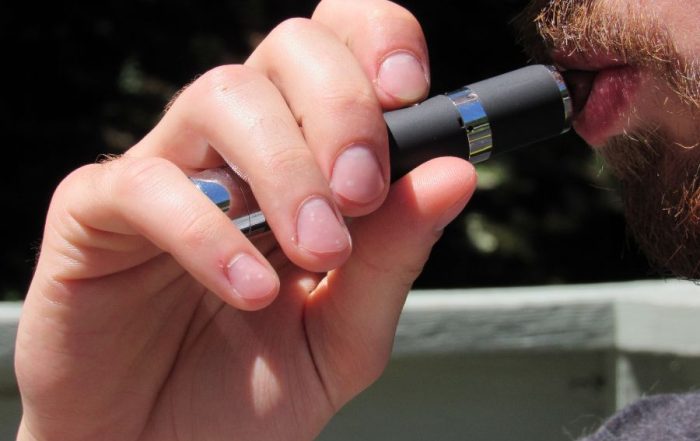4 Key Ways to Support an Addict Without Enabling
Trying to support a drug user is certainly a scary, frustrating, and heartbreaking time for any family. Central to our approach as a program dealing with substance use disorder is helping the family understand how to support an addict without enabling.
The best way to support somebody with an addiction is to have firm boundaries, have a balanced mix of logic and compassion when interacting with them, and to take care of your own emotional needs.
The trouble is that the answers aren’t always as clear-cut in practice as they are in theory. All three points mentioned are just as important as the others, and all three come with their own sets of nuances.
In this article, we’ll discuss each point in detail, and help set you and your family on the path towards the best possible outcome for all concerned.
How to support a drug addict without enabling
If you have lived with or around your beloved addict in recovery, you have probably experienced some form of manipulation which has led you, knowingly or unknowingly, to enable your loved one.
Of course, this can be a very touchy subject for many of us. Some have gone so far as to treat “enabling” as a dirty word, implying that the parent is at fault. Nothing could be further from the truth.
No one wants to enable their close relation. Typically, family members enable a loved one’s substance use without conscious thought – simply because it’s what we’ve always done or because we haven’t fully thought through the process that’s unfolding right in front of us.
Here are some of the initial steps to take in supporting someone struggling with addiction to alcohol or drugs:
1. Set firm boundaries
One of the most effective ways to help support a loved one with an addiction is to have thought through what our boundaries are in advance, rather than trying to implement them on the fly.
Every family is different and every loved one is different. Start by asking yourself what is important to you in the relationship with your drug-using loved one. If there’s a spouse involved, make sure to include them in the conversation. Also, note that it can be incredibly helpful to have the feedback of a professional involved in this conversation as well.
Ask yourself:
- Do you have any “dealbreakers?” Examples of this could be sneaking out of rehab, getting high in the house, bringing drugs into the home, etc.
- Are there other things that are big deals, but not necessarily dealbreakers? What about yelling and disrespect? What about lying or skipping school?
The key here is to figure out which of these things are lines in the sand for you and decide how you’ll respond to each one. This gives the drug user in your life a clear path to earning your trust, or not.
Get on the same page with your spouse and whatever professional counselor or therapist you’re working with, and come up with a plan. Remember that presenting a united front is always going to allow for a more consistent application of boundaries.
There may be something that is very important to you that your spouse doesn’t think is a big deal, and vise versa. It’s important to discuss those issues and decide which compromises you’ll make.
One word of caution: we advise families not to go too overboard with the sheer number of boundaries they create. Keep it simple. The analogy we use with families is “six shots in your gun.” If you know you only had six opportunities to set boundaries, which would you choose? Which ones are the most important.
Some examples of solid boundaries are:
- Our home is drug-free. Therefore, if we find that you’ve brought drugs into our home, you’re going to have to find a new place to live (assuming the drug user in question is over the age of 18).
- We will support you through drug and alcohol treatment, but we will not finance a revolving door. If you leave treatment against medical advice again, we will not help you find another rehab after that.
- You’ve used our money to buy drugs in the past. Therefore, if you need money for necessities, let us know what those are and we can buy them for you. We will not give you money or let your borrow our credit cards.
Of course, each of the boundaries above is nuanced and requires some examination of the relationship’s history. These are just examples.
2. Provide love and logic in the relationship
We often say that what drug users need is a combination of “love and logic.” Drug users are especially prone to delusional thinking and rationalization, and having someone providing them with solid logic is a benefit to them. Additionally, nobody truly “hears” anything that’s said to them unless they first understand the person speaking is on their side (aka, loves them).
This means being ready to have tough conversations, discontinue conversations when they cross the line, and make numerous judgment calls as you go.
Families that have the most success in this domain are those who adopt the attitude of teaming up with the addict against their addiction, rather than adopting a more combative “us vs you” mentality. Remember that the individual on drugs is under foreign management – there may be some tough moments ahead, but the young person you love so much is still very much alive and well. The person you’re speaking with when they are active in their addiction isn’t truly who they are.
We find that having a substance abuse support group in place is especially beneficial in this endeavor. Your loved one may say or do some things that are directly contrary to how they were raised or how you would prefer to be treated. The ways in which they express this may vary in intensity from little white lies to outright stealing and combativeness.
If you adopt the attitude that you’re going to stay on their side, no matter what, you’ll be able to more easily sort out which actions are helping them stay addicted and which ones are allowing them to make their own decisions.
Regardless of the outcome, you’ll know you did your part to support them, and knowing that you’re keeping your side of the street clean will allow you to make more clear decisions as you go.
3. Don’t neglect your own needs!
One of the most common traps that family members fall into when attempting to support a drug user is that they slowly, over time, begin to completely neglect their own needs. This leads to families who silently struggle with fears and hang-ups that can often be solved in a simple conversation, such as the concern about their young person potentially being too young for recovery.
This is very understandable, as our gut reaction to an emergency is triage: we view the drug user’s addiction as the most pressing issue in the family and put all of our focus on that.
The problem is, what happens when this issue drags on for months? What about years? Are you prepared to “hang in there” that long without taking care of yourself? Of course not, and nobody would suggest you should try.
The analogy we use with parents is that on airplanes, the captain always tells us to put on your own mask before assisting others. The purpose here is not to be self-centered. The purpose is to acknowledge that if we are suffocating, then we’re no good to anybody until we can fix our own problem.
The same is true in dealing with substance users. Regardless of whatever else happens, addiction is hard on everybody in the family. If you are suffering in silence, your effectiveness will diminish over time until you give yourself permission to take care of yourself!
The best ways to get started taking care of yourself are:
- Have support systems built into your life, including people who understand addiction. This point is critical as it’s common for well-intentioned friends and family to give very bad advice sometimes where addiction is concerned.
- Seek a support group of some kind. Support groups for parents of addicts are relatively easy to find and generally don’t cost anything. Al-Anon, NarAnon, and Parents of Addicted Loved Ones (PAL) are great places to start. If you live anywhere near Georgia, North Carolina, or Florida, seek out one of our parent support group meetings.
- Seek individual counseling or family counseling, if needed. Guilt and shame are insidious emotions, and they find a way to sneak into most families through this process. Individual or family counseling can be a great way to separate the “true” from the “false” when it comes to our internal dialogue.
- Do things that bring you joy. Engage in your hobbies, take vacations, spend time with friends. There’s nothing about a loved one’s addiction that says you can’t enjoy yourself, and you don’t need to feel guilty about enjoying yourself while a member of your family makes self-destructive decisions.
If you can’t bring yourself to it for yourself, then allow your loved one’s recovery to motivate you:
It has been our experience that when the family members of an addict are heavily involved in their own 12-step recovery program, the chances of their loved one staying sober increase significantly.
The reason for this is that living with or close to an addict has a very toxic effect on anyone who loves them. Over time, in order to cope with the difficulty of the loved ones slowly destroying themselves and their lives, we adapt our own “diseased” patterns of living to respond to them.
4. Consult a professional
Just like you wouldn’t try to tackle diabetes, cancer or any other “disease” by staying home and thinking about it, addiction usually can’t be beaten without some kind of specialist providing some insight and guidance. Recovery can be a roller coaster with high “highs” and very low “lows.”
As professional substance abuse counselors, we see this every day in our programs: this process is exhausting and hard. Sometimes it’s “three steps forward, two steps back” for months at a time. Sometimes everything is smooth, and sometimes a relapse or setback happens, seemingly out of nowhere. Give yourself a fighting chance by not trying to go it alone.
Finding a professional in your area is generally as simple as a Google search for programs near you, or discussing the issue with a trusted family doctor or therapist.
Conclusion
By taking care of our own physical, emotional, and spiritual needs, we can maintain a status of objectivity towards our loved ones, which is the best way to love them without engaging in enabling behavior, especially while they are in early sobriety.
We find that living this way improves our lives in general, so we would not want you to miss out on this experience! If you have any further questions, please reach out to us and we would love to talk with you!







